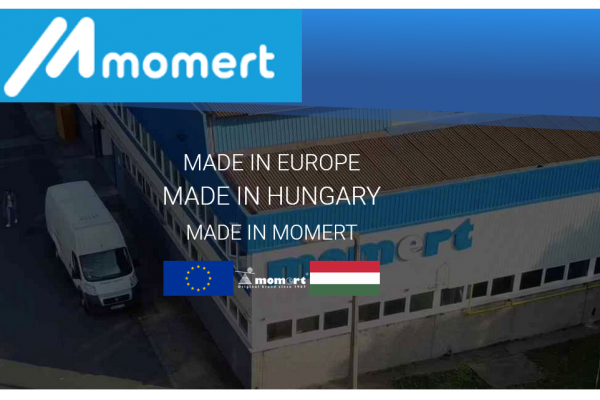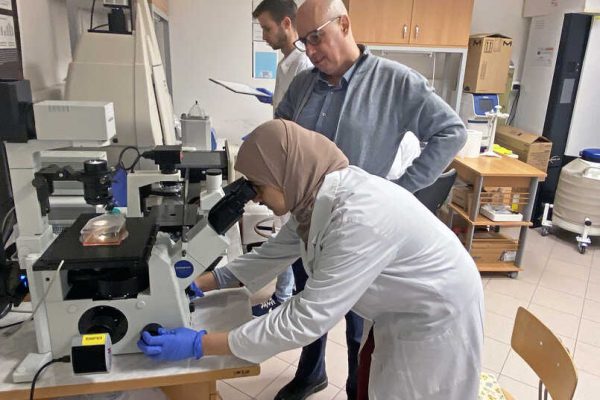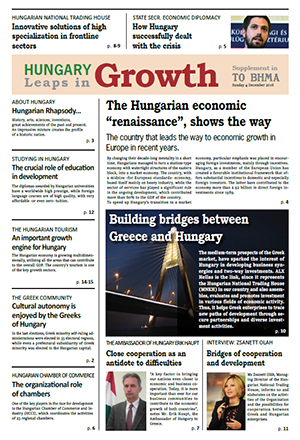- Dubai’s Al Habtoor buys office buildings in Budapest
- GE opens Global Digital Development Center in Budapest
- UBIQUITY GLOBAL SERVICES to open service center in Budapest
- China’s BYD to set up electric bus manufacturing plant in Hyngary
- P&G announces usd 200 mil investment as signs strategic cooperation with Government
- British Petroleum to set up eur 26 mil service center in Hungary
- With another credit rating upgrade for Hungary no more talk of “unorthodoxy”
- Alumetal completes HUF 9 bln investment
- Chinese invest in Kecskemét light aircraft factory
Specifically:
Dubai’s Al Habtoor buys office buildings in Budapest
Dubai-based Al Habtoor Group has confirmed the acquisition of several key properties in Hungary to add to its portfolio which already includes The Ritz-Carlton, Budapest and The InterContinental Budapest, arabianbusiness.com reports. The latest additions to the Group’s property portfolio in the country include Rumbach Centre, an office building located in the historic part of Budapest’s financial, commercial and administrative centre near Deák Square, the company said in a statement. According to the arabianbusiness.com, the Group said it also purchased an office complex in Dorottya Udvar, Budapest. The restored, early 20th century-style former textile mill has been redeveloped into a spacious office complex with a strong international tenant line-up, Al Habtoor added.
Khalaf Ahmad Al Habtoor, chairman, Al Habtoor Group said: “I am delighted to announce our latest acquisitions in Europe. Hungary has a vibrant economy with a rapidly growing office market. I am happy to build on our other successful ventures in the country.”
Source: dailynewshungary.com
GE opens Global Digital Development Center in Budapest
General Electric today inaugurated its Global Digital Development Center in Budapest, which it says was carried out through a HUF 8 billion investment.
By 2017, the company says it is planning to employ approximately 400 highly qualified IT personnel developing industrial internet solutions. GE says the opening of the center is an especially important milestone in its history, fitting into its efforts to become one of the leading digital firms in the world by 2020.
Minister of Foreign Affairs and Trade Péter Szijjártó said at the event that GE is one of the best partners of the Hungarian government.
According to GEʼs website for Hungary, the American giant has been operating in Hungary since the end of 1989, when it made a strategic investment in Hungarian lamp manufacturer Tungsram. GE currently has more than 10,000 associates in the country; of these, 9,000 are working in industrial businesses, with an additional 1,500 employees at GE’s Global Operations Center in Budapest.
Source: bbj.hu
UBIQUITY GLOBAL SERVICES to open service center in Budapest
Ubiquity, an innovative and rapidly-expanding business services organization, today announced a significant expansion of its global delivery network with the opening of a new delivery center in Budapest, Hungary.
Ubiquity is scheduled to open its Budapest site in February 2017. The new site has capacity for more than 200 new employee positions in support of the European, Middle Eastern and African (EMEA) markets. The company, which has deep expertise in the financial services and payments space, is expected to service clients in all major European languages from the site.
“The professional talent available in Budapest is very impressive,” said Matt Nyren, Ubiquity’s founder and president. “Budapest’s human capital and business capabilities are well known, and we expect to deliver great service for customers in Europe and beyond from our new site.”
Ubiquity plans to commence hiring shortly and begin operations after the start of the calendar year. Ubiquity’s growth in Europe is being complemented by ongoing expansion in the North America, Latin America and the Asia-Pacific operating regions.
“Ubiquity is just the type of exciting, innovative company that we are looking to attract to Hungary,” said Róbert Ésik, President of the Hungarian Investment Promotion Agency (HIPA). “Our country’s highly-skilled and multilingual talent base will enable Ubiquity to offer a robust, pan-European delivery solution to a wide variety of business servicing needs, including markedly high value-added activities.”
Source: prnewswire.com
China’s BYD to set up electric bus manufacturing plant in Hyngary
Budapest, July 26 (MTI) – Chinese company BYD will set up its first European electric bus manufacturing plant and create almost 200 jobs in Komárom, in northwest Hungary, the company told MTI on Tuesday. BYD will begin hiring workers in September and plans to start production at the end of 2016. Hungarian suppliers will initially provide 30 percent of the parts for the electric buses assembled here, a ratio expected to rise to 70 percent later. The plant is expected to have capacity to turn out almost 1,000 buses a year, which will be utilised depending on demand. The buses made in Komárom will be sold in Hungary and other European countries.
BYD’s electric bus has a licence for the European market and has already been tested in 25 cities. BYD purchased a 18,000sqm plant in the industrial park of Komárom in 2008.
Source: dailynewshungary.com
P&G announces usd 200 mil investment as signs strategic cooperation with Government
Budapest, September 27 (MTI) – US consumer goods company Procter and Gamble announced a 200 million dollar investment project when signing a strategic cooperation agreement with the Hungarian government at the company’s plant in Csömör near Budapest on Tuesday. On behalf of the government, the agreement was signed by Foreign Minister Péter Szijjártó. Szijjártó said that during the past 18-24 months, Hungary’s trade data broke records, which was in part due to the achievements of Procter and Gamble and other foreign economic players, including US companies.
After addressing a conference organised by AmCham and state investment-promotion agency HIPA earlier on Tuesday, Szijjártó told journalists that Procter and Gamble is carrying out two investment projects at the moment which would make Hungary a European production centre for the company and create 250 jobs.
Source: dailynewshungary.com
British Petroleum to set up eur 26 mil service center in Hungary
Budapest (MTI) – British Petroleum (BP) will establish a new service centre in Szeged, in southern Hungary, with an 8 billion forint (EUR 26m) investment, the foreign minister announced in Budapest on Monday. The Hungarian government is contributing 1.9 billion forints to the project, Péter Szijjártó told a press conference.
Budapest (MTI) – British Petroleum (BP) will establish a new service centre in Szeged, in southern Hungary, with an 8 billion forint (EUR 26m) investment, the foreign minister announced in Budapest on Monday. The Hungarian government is contributing 1.9 billion forints to the project, Péter Szijjártó told a press conference.
With another credit rating upgrade for Hungary no more talk of “unorthodoxy”
In Thursday’s print edition of the Financial Times, following Standard and Poor’s decision to restore Hungary’s credit rating to investment grade, a commentator praises Prime Minister Orbán’s “economic miracle.” Once a staunch critic of Hungary’s “unorthodox” measures to restore its technically bankrupt economy, the British daily’s admiration is the first sign that S&P’s move closes an era of doubts over whether Hungarian reforms are working.
Standard and Poor’s has joined Fitch Ratings in officially recommending Hungarian state bonds for investment and Morgan Stanley’s London analysts expect the last of the three major credit ratings agencies, Moody’s, to do so in November. The overdue upgrade means that even the most cautious funds may now invest in Hungary’s growing economy. A milestone has been passed.
S&P noted that the country’s “rising employment and real disposable incomes are likely to continue fueling private consumption growth” and that “Hungary’s external financial profile, which has improved considerably since 2009, will remain robust.” Both are understatements. Hungary is delivering the best employment data since the country began tracking official statistics on employment (1992), and today’s return to investment grade will drive even more investment. Following the upgrade and strengthening of the forint, Hungary’s Central Bank did not respond by cutting the base rate at its last meeting.
S&P’s upgrade brings more recognition that, though once dismissed as “unorthodox,” the government’s economic policies are working. We’ve come a long way since 2010.
Investors’ trust started to erode precisely 10 years ago when, in a speech to his party, the freshly re-elected Socialist prime minister, Ferenc Gyurcsány, candidly admitted lying about the country’s true economic output in order to get re-elected. It went downhill from there. Hungary, together with Greece and Iceland, was among the most exposed to the 2008 crisis. Hungary’s debt skyrocketed after years of economic mismanagement, unemployment and shrinking GDP before the crisis rocked global financial markets. Hungary, which had once outperformed the rest of the former Soviet bloc in the early years of the transition, had become such a risk that no one wanted to buy its state bonds and the country had to turn to the EU and IMF for a bailout in 2008.
Hungarian voters had had enough by 2010 and rewarded Viktor Orbán and Fidesz with a landslide in the national elections. However, that in itself would not have been enough. The country had fallen under the EU’s excessive deficit procedure and had a harder time accessing market financing. It suffered from a precarious increase in foreign currency-denominated debt in the private and public sectors. It had to both comply with the EU’s strict budgetary rules and produce growth at the same time. No wonder credit rating agencies downgraded the country’s national debt soon after the new government took control, making it even more costly to attract market funding.
The Orbán Government refused to follow the IMF’s typical counsel to implement strict austerity measures. Instead, the government pursued the so-called “unorthodox” measures, temporary taxes on certain sectors of the economy, relief for families from foreign currency-denominated debt, fiscal discipline and so on.
By 2013, the country had proved that, regardless of its unfortunate state and the upcoming elections, the government had maintained a stable budget. Thus the EU’s excessive deficit procedure, which the country had been under since joining the EU in 2004, was finally lifted. In the same year, Hungary paid back all its debt from the IMF-EU bailout from 2008.
In 2014, the country’s GDP growth saw a big jump. With 3.7 percent growth, Hungary at last reached its pre-crisis level GDP, despite the fact that the budget was under control – i.e., no fiscal stimulus – and the debt-to-GDP ratio was shrinking.
2015 was a record-breaker. With steady growth and a shrinking debt-to-GDP ratio, Hungary produced a record high trade surplus and unemployment fell to the least ever recorded. According to Morgan Stanley’s Vulnerability Scoring Indicator, Hungary’s economic vulnerability decreased by more than any other country in the region between the 2008 financial crisis and 2015.
Arriving in 2016, even the staunchest critics of Hungary’s unorthodoxy, the credit rating agencies, started to reconsider their positions on Hungary. Not long after Fitch Ratings published a report that said that most countries take six years on average to recover an investment-grade rating, Hungary restored its credit rating with Fitch in just four years. S&P followed last Friday and Moody’s is expected to follow in November.
Nearing the fourth quarter of 2016, the country’s economic performance has continued to break records and Hungary has paid back the last installment of the 2008 bailout package to the EU.
Going forward, Prime Minister Viktor Orbán has set two ambitious goals: to achieve five percent GDP growth and a zero-deficit budget in the upcoming period. These would challenge almost any state in the EU, but they don’t seem so far-fetched here, as even the most conservative critics of Hungary’s recovery, the credit rating agencies and the Financial Times, have learned to appreciate Hungary’s “economic miracle”.
Source: abouthungary.hu
Alumetal completes HUF 9 bln investment
Poland-based aluminum manufacturer Alumetal has inaugurated a HUF 9 billion plant in the industrial park of Komárom, northwest of Budapest, Hungarian news agency MTI reported Friday. The investment is creating 150 jobs.
The Hungarian government supported the factory investment, the company’s first outside Poland, with subsidies and tax rebates not exceeding 35% of the projectʼs cost. The investment is foreseen to raise the group’s annual output by 60,000 tons, up to approximately 225,000 tons.
Alumetal will make aluminum castings for the automotive industry using recycled materials at the 24,000 square-meter plant, MTI reported.
The Alumetal Group had revenue of €277 mln in 2014, according to MTI.
Chinese invest in Kecskemét light aircraft factory
Kecskemét-based aircraft manufacturer Magnus Aircraft has signed an investment deal worth more than EUR 30 million on creation of a joint venture with Chinaʼs Tianshan Industrial Group, online news portal index.hu reports today, citing Hungarian news agency MTI.
The two companies are creating a new joint venture for the Hungarian manufacturer to produce light aircraft under license for sale in China. The aircraft are Fusion 212-type, two-seater propeller-driven low-wing monoplanes, of which 1,500 units are planned to be produced and sold.
The greenfield investment will see the building of a mid-sized airfield, an assembly and maintenance plant, and the Magnus Pilot Academy pilot training center network.
The Kecskemét company expects to bring in sales revenues of a total of HUF 50 billion over six years through the deal, employing as many as 600 people at the factory, which is gearing up for a capacity expansion. In addition, a further 250 workers will be employed in China in the first phase.
The company also plans to export its eFusion-type electric-powered aircraft to China, for which an opportunity may theoretically arise from 2018, the report said.
Source: bbj.hu












